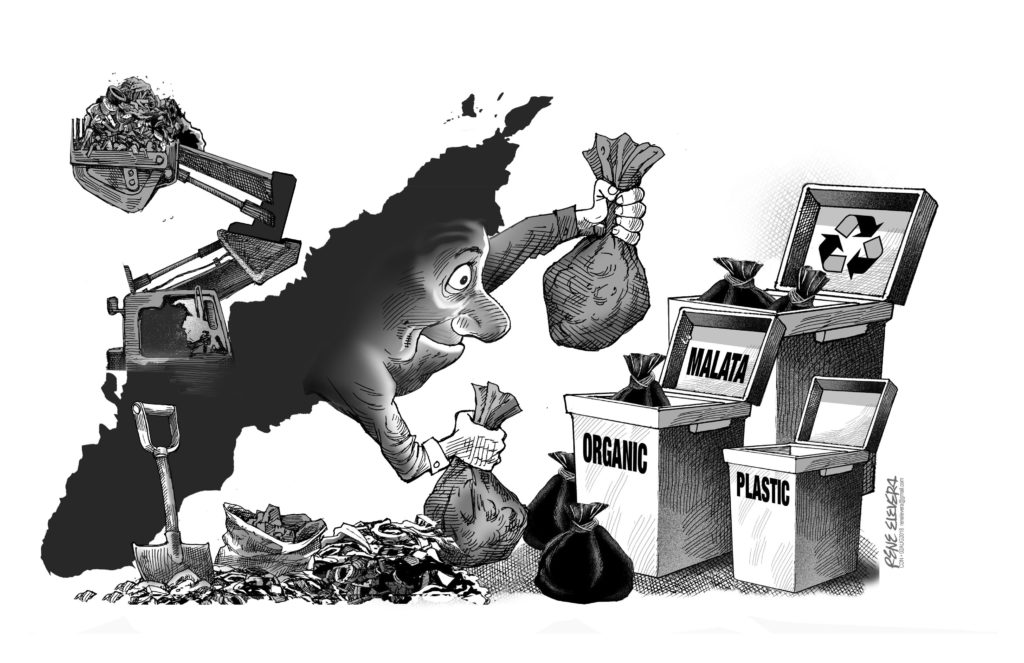Amid the spate of killings that occurred in Metro Cebu streets in the past few days — not a few netizens have taken to calling Cebu City as the new ‘killing fields’ in light of the deaths of two law enforcement officers in relation to the war on drugs — it is always good to see a few patches of hope and sunlight amid the violence.
Cebu City Hall started yesterday its implementation on the ban on single use plastic items as part of its efforts to inculcate eco-friendly practices among its officials and employees and by extension those who make a living near it i.e the food vendors.
By single use, these refer to the plastic spoons and forks and containers that are used to serve food at fastfood outlets as well as the plastic bags that contain the cooked food served by vendors.
They may not look like much but the sheer volume of plastic used to cover and contain food on a single day or week would be enough to clog the city’s canals and waterways for weeks on end.
In fact, plastic remains the dominant refuse or waste that is dumped in the city streets, canals, waterways and roads by households and passersby who don’t care much about waste segregation, recycling and other best eco-friendly practices until they experience the ill effects of their carelessness such as floods and diseases.
And in the case of Cebu City, the inculcation and education of best eco-friendly practices starts at the workplace. When one sees co-workers carefully disposing their wastes at designated garbage containers, he or she is usually encouraged to follow suit unless that person is either hopelessly dense, dangerously apathetic or worse, thinks this whole environmental awareness and eco-friendly practices are a waste of time.
And apparently the eco-friendly practices aren’t just a fad but a mindset that other stakeholders seek to promote and replicate in their areas. We note Cebu Pacific’s announcement of its “Juan Effect” program done in coordination with the Department of Tourism (DOT).
Among other things, the program which seeks to promote sustainable tourism will mandate Cebu Pacific to cut down on its use of non-recyclable plastic and shift to bio-compostable cutlery for its passengers.
Considering that Cebu Pacific averages 400 flights daily, that is a substantial effort not only to reduce disposal of plastic items but to promote the practice of eco-friendly waste disposal among its passengers who number in the thousands.
Contributing to a cleaner, more environmentally safer world need not require gargantuan amounts of money, time and effort from anyone person, group or community. Every little bit, done well and right, can make a difference.
Disclaimer: The comments uploaded on this site do not necessarily represent or reflect the views of management and owner of Cebudailynews. We reserve the right to exclude comments that we deem to be inconsistent with our editorial standards.

